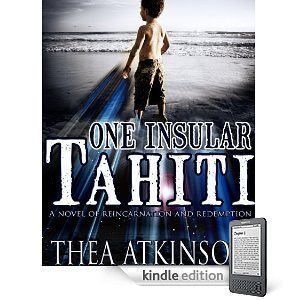Thea Atkinson's Blog, page 12
March 14, 2012
Perfect Characters are Boring
by:
Diane Tibert
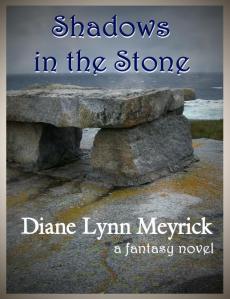 The main character – the hero – in the first novel-length story I wrote many years ago was perfect. He was strong, wise and handsome. He knew everything and controlled his emotions and temper like an ancient monk. All his friends loved him and would risk their lives for him. He was a master swordsman who had little trouble subduing a monster. A few times I had him struggle with a large beast, but truthfully, I was just toying with it, like a cat does a mouse, all the while knowing – as readers knew – he'd slay it and move on without a scratch to the next thing standing in his way.
The main character – the hero – in the first novel-length story I wrote many years ago was perfect. He was strong, wise and handsome. He knew everything and controlled his emotions and temper like an ancient monk. All his friends loved him and would risk their lives for him. He was a master swordsman who had little trouble subduing a monster. A few times I had him struggle with a large beast, but truthfully, I was just toying with it, like a cat does a mouse, all the while knowing – as readers knew – he'd slay it and move on without a scratch to the next thing standing in his way.
The man was so perfect there was no room for improvement.
That was a huge problem.
For one thing, perfect people, or at least people we perceive to be perfect, are not loved by everyone. There's always someone who wants to knock them off the pedestal and claim if for themselves. That person might be the hero's friend. If the hero is perfect, he'll spot this traitor before action is taken and eliminate the threat. No threat, no tension. No tension, no conflict. No conflict, no story.
Another thing I realised since creating Mr. Perfect was perfect characters are boring. Boring. I love cheering for the underdog and the underdog is never perfect. Think Forest Gump. The underdog often misplaces his car keys, thinks he knows where he's going when he doesn't or forgets to pick up his kids at school. All of this can lead to conflict which translates into a story.
An interesting flaw to give a character is one another character in the story praises. I've done this in my fantasy novel, Shadows in the Stone. The hero is always going on about honour and truth and expects these qualities from himself and everyone around him. Unbeknownst to him, his female counterpart is keeping secrets that could harm them both. She knows she can't live up to his expectations. Eventually this creates a lot of conflict which will either destroy them both or bring them closer together.
Another important fact I've learnt since Mr. Perfect is characters must grow between the first and last page. How could a person grow in a positive way if they're already perfect?
To accomplish this growth, the hero must be imperfect. He needs something to overcome. It needn't be gigantic like changing his entire personality and going from an evil-doer to the best neighbour you'll ever have. It can be as little as opening his eyes to the fact he's neglected his family and spends too much time at work.
Slapping characters with flaws gives the author something to work with. As the hero strives to overcome whatever the plot throws at him, he can be literally tripped-up by his inability to properly tie his shoes. Perhaps he must overcome his fear of snakes to save Marion before the cave collapses or use his inhaler to continue the chase after the bad guys who kidnapped his daughter.
See where I'm going here? When you give a character flaws, you make them more interesting, more realistic.
The wonderfully flawed characters I've created since Mr. Perfect have made me laugh, cry, shake my head and root for them. Hopefully, they'll make my readers do the same.
The flip side of this is beginning with Mr. Perfect and bringing him to his knees by delivering one horrific blow after another. After all is said and done, he's changed drastically. Change for the bad is also growth just not the type I prefer to write about. I might even call that rot, not growth. Still, the character changes and that's the journey readers want to learn about.
Whether characters improve or go down-hill, the important thing is the flaws they overcome or develop along the way.
-30-
Diane Lynn Tibert is freelance writer living in central Nova Scotia. Her current project, Shadows in the Stone, will be released later this year. In her spare time, she writes a genealogy column for several Atlantic Canada newspapers. Readers can follow her fiction writing on her Writer ~ Dreamer blog (http://dianetibert.com) and her genealogy ramblings on her Roots to the Past blog (http://rootstothepast.com).
Related articles
Mr. Perfect or Bad Boy Hero (susansheehey.wordpress.com)
Got Villain? Use these 5 ideas to write him (or her) real (theaatkinson.wordpress.com)
Holding Out for a Hero: Characterization (christinalibooks.wordpress.com)
Filed under: guest blogging, writerwednesday exercises








March 10, 2012
Coming Clean: Some small publishing stats from a modest seller
I have to come clean. In the last year and a half since I've been on this indie journey, I've been interviewed about a dozen times both for newspapers and online. I've guested on a few blogs and even gave advice to other newbie writers.
I feel like a fraud because of it. Not because my answers were dishonest, but because there is one answer I always fudge on and squirm over when I'm asked.
"What made you decide to self publish?"
That's it right there. That's the one. I squirm over it because I know I'm not going to be completely honest when I answer it.
Sometimes there are things a writer does to promote and market: I like to try on authenticity as a tool." I yam what I yam," to quote Popeye, and in interviews sometimes a gal wants to seem smarter than she really is. Sometimes she wants to seem wittier.
And then sometimes she thinks her personal life is no one else's business.
Am I right?
So by now you're wondering what about that one question would make me squirm, what connection does it have to my personal business. Really. It's such a benign phrase. It's asked of every indie writer I know.
I always give an answer.
I want control over my writing destiny.
I got tired of waiting for the Big 6 to see my genius.
I wanted to offer my books now — because traditional publishing takes years.
None of these are true. Not really. I mean, they could be true, but they're not the truest answer. The real answer is so selfish and so foolish you would laugh at me. Seriously.
It was all about money.
Okay. Assuming you have had your chuckle, let me explain that as funny as it is for all the reasons there truly are (indie authors I know you'll chime in as to exactly why self-publishing for money is so durn funny) it really was my initial motivation. It's just that selfish as it was, it was driven by fear, not greed; it was driven by need, not want.
Enter the issue of privacy on that dreaded question.
You remember my post about running, right? Well, it was only half the story.
For 18 years I've held onto a job I loved. Literally. I'm a teacher. I specialize in computer applications and writing skills, and there hasn't been a day I dreaded going to work.
For the 23 years I've known my husband, he's been a lobster fisherman. Tall, hardy, strong, all the things you imagine (sometimes deliciously grisly-looking at times too, but I digress as usual.) He was diagnosed with MS and we feared he'd not be able to work — he certainly couldn't work until he was better.
I became the sole earner. We still had a car payment, a mortgage, a daughter going into her first year of college.
I couldn't truly work more than I was. I knew I needed some passive income to help augment my salary. Even $50 a month could help, I realized.
At about that time, I discovered the e-book publishing world, and I thought I could upload a few of my backlist novels in the hope that they might earn a small amount but might eventually earn enough to sustain themselves. I didn't care if they brought in $10 or 1000 — although 1000 would be better, but I knew that wasn't going to happen. (Litfic writer with topics and style to the left of mainstream, remember?)
Eight months after his diagnosis, at the near end of the academic year, the government decided to cut heavily into education. 21 teachers in my region lost their jobs.
You guessed it. I was one of them.
For 4 long weeks I faced the real possibility that our house would have no earners in it. The stress was incredible. After much angst, I found a temporary position at a nearby campus. It was a one hour and a quarter commute twice daily, but I was working — or would be come the fall. As grateful as I was, and still am, the fear remained — and still remains. I have no guarantee of continuing employment, and with the same government threatening more cuts to education in the very near future, I'm not sure where summer will land us.
So there you have it. The real reason — laughable as it was — for me to self publish.
I needed the money.
And although I'm not looking for pity, or using this as a marketing ploy, I'm saying all this to say this:
I want my books to sell on their merit: I always have. And one and a half years later they actually are selling — not as well as other authors, mind you — but a small trickle with enough good reviews that I think I can come clean, finally. Buyers are finding a Thea read slowly but surely, and they seem to be enjoying it. The marathon of sales has begun with painfully slow steps, but I have every hope that each novel and each reader brings me closer to staying on the track longer.
To those readers who have picked up a Thea read, I'm more grateful than you can know, and now you know why.
I just wanted to tell you that my writing account says, "Bless you."
Now for the promised stats:
In February, I sold a total of 792 books
Before you get excited for me, let me explain that
650 of those were the .99cent Pray for Reign novel. I receive .35 on that dollar. (I recently increased the price to 2.99 in the hopes I can earn a hair more)
49 of them were the 1.99 Formed of Clay (I get .70 on each of those)
3 were Crows and 3 were Anomaly and 2 were Clay Shadows
and because I offered Tahiti for free one day, I sold 85 of them in the days after.
In total, I think I earned about $350–the Amazon reports will be out soon, and I'll let you know then.
So for me, it's the numbers that show a nice increase. Now that all my novels are $2 and up, I hope to sell about 300 per month, which will pay the mortgage.
We can all dream, right?
Filed under: Thea bits








March 7, 2012
Creating Great Teen Characters
 Reblogged from TeenGirlsthatWrite:
Reblogged from TeenGirlsthatWrite:
As I said earlier in my earlier articles. Teen characters always want something and the goal of your novel is to take them through the journey as they grow and become stronger people. This is usually because getting want you want always seems next to impossible and in novels they always are. The character arc is what makes characters interesting. You take a shy girl and turn her into a fearless warrior. People change all the time and in your novel that's the whole point. You throw a few …

I didn't have a scheduled post for Writer Wednesday, but I did find this nice little post about characterization and teens. So: well, the obvious must occur. It's a post about building great teen characters. You all know how I like characterization.
Plus, I'm working on a YA paranormal series starting with Water Witch, so it came at a good time for me as a validation and as encouragement. Keep your eye out for it, it's coming very soon. A couple more weeks, then off to the beta readers in the hopes that by the end of April, it'll be available.
Enjoy.
Filed under: Thea bits








February 29, 2012
5 more thoughts on Character Building: @dnkboston guests
More on Making 'em Real: Characters, that is
By: Deb Nam-Krane

Image via Wikipedia
I suspect I'm like many writers: the majority of my characters weren't created by me but were fully blown people I "met". They were doing something or responding to someone else, but much about them was already there, waiting for me to describe it on my pages. To those who want to know "No, really, where did they come from?" I can only respond "Does it matter?" Did some of them resemble people I'd met years before? Were a handful based on other characters I'd met in other works? I'm sure, but part of my job is to help them come into their own.
I've never been able to create a character who was simply a device. I've tried- haven't we all?- but it doesn't take long before they or one of my other characters look at me as if I'm insulting them. Well, we can't have that. So how can I make sure my characters are realistic?
Start them off in mundane situations before you put them in unusual ones. (If your work doesn't have any, use this as a writing exercise.) How do they handle walking from work to home? Casual conversations with coworkers? A trip to the supermarket? Do they roll their eyes with every delay? Try to be accommodating? Tune everyone out so they can go to their happy place? Why? Figure out what makes them tick in an everyday setting before you put them in a high-pressure one. And if you can't imagine them keeping the drama to a minimum no matter what, well, that's good to know too.
Ask them who the most important person is to them. Is the answer obvious, or do you have to taunt and cajole to get it out of them?
Ask them what they want, then make then explain why. What is their happy ending? Know that even if you have no intention of giving it to them.
Now ask them what's keeping them from getting it. If I may take some liberties with Mies vander Rohe, God is in the flaws. The mainstay of Agatha Christie's Poirot stories is that the victim's character- and primarily his or her flaws- was the key to their demise. Your characters' flaws are the most important reasons why it takes between 20 and 80 thousand words for them to arrive at some resolution, if any.
Focus on them, not the plot. Put your characters in situations and give them circumstances, but don't force the action. See what they will do. Once you get to know your characters, you'll probably have a pretty good idea of what they will do in most situations, but when you're still getting acquainted, don't force them into anything they don't easily volunteer to do. You can- and plenty of writers do- but unless you're willing to spend some time explaining or at least acknowledging why they performed some logic-defying gymnastics (and probably complicating your plot), let the characters tell you what they want to do instead. That will most probably lead to a more believable overall story and, as a nice bonus, just might lead to a little growth. Win-win-win.
Related articles
Writers, Why Are Character Lists a Waste of Time? (damyantiwrites.wordpress.com)
World, Character, or Plot? Why do you read and write the way you do? (writingsnippets.wordpress.com)
Characters from Gray (fantageland93.wordpress.com)
Filed under: guest blogging, writerwednesday exercises








February 25, 2012
Selling to 5000. Get an ebook for nothing
Buy OIT from Amazon, email theaexcerpts@gmail.com with the receipt (you can delete out any personal info, but I'm going to bin them after anyway) and I'll shoot you off a coupon code to download Formed of Clay for free.
Offer is good all week from Feb 25-Mar 3. Let's say around 5pm AST, just to pin a deadline.
Here's the backstory:
Well, it took me longer than most: almost 16 months to sell a grand total of 5000 books. I met that wondrous goalpost last week, and I'm pretty stoked.
I'm not even counting the freebies I've given away: just the ones that brought in money–even pennies (which is what most bring in, admittedly.)
Yesterday, I gave away on Amazon a cool 5978 copies of One Insular Tahiti. Weird: it took me 16 months to sell 5000 in total of all my books, and in one day I surpass my sales with one giveaway. Wow. I'm hoping I now have at least 600 new fans. Is asking for 10% too much?
I wonder.
Anyway, I'd love to see OIT actually sell a few, so if you've been thinking of grabbing a copy, and didn't make it in time for the freebie, I'd be pleased to package it with Formed of Clay (coupon from Smashwords). Just see the DEAL above. grin.
Here's some Praise:
"These characters were so real that I wondered if they came from experience of the author or someone she knows. Afflictions that I know nothing about, but wonder about, are explained in a moving manner. The writing really made me feel I had seen through someone else's eyes, understanding their feelings and motivations. I really liked that! It didn't change my beliefs, but it did make me feel I gained sympathy for others' perspectives.
I really enjoyed One Insular Tahiti and I would highly recommend it to adults who are prepared for its depth and dark themes. " ~Kate Policani (Amazon Review)
".. It's sad, hopeful, painful, forgiving, thought-provoking, all rolled into one. And it's like nothing I've read before." ~Sybil Hodge (Amazon Review)
Here's the blurb:
Luke MacIsaac is dead, and not restfully dead. His death has come the way he always feared it would: in the claustrophobic, underground heat of a Cape Breton coal mine. He had suspected it would end this way, had embraced it even, so while his body is buried, his soul settles into a watery existence of endless waiting.
But in short order the placid waters of his afterlife turn to rolling seas of time and memory as his violent past plays out again for him. Images of war, childhood abuse, and the tortured life of a brother he loved and failed threaten to inundate him.
More than anything, he wants to escape.
In his confusion and pain, he senses a kindred spirit in Astrid, a newborn struggling to stay alive. Luke helps her in hopes she may one day be the one who brings him out of his purgatory and into a new incarnation.
He discovers too late that Astrid's soul is linked to his hellish past life. Now he must experience all the anguish they went through together, and watch helplessly as Astrid goes through sorrows of her own, before the two of them can finally meet in this world and find peace together.
Filed under: Uncategorized








February 24, 2012
Inside the Author's Mind – Thea Atkinson
Thea is the final author interview for February—the fourth in the line of amazing Canadian females. She writes thrillers and has numerous novellas and novels available. Welcome the prolific Thea Atkinson, and take a look at her selection. * * * * Who is Thea? Thea Atkinson is a writer of character driven fiction; call it what you will: she prefers to describe her work as psychological thrillers with a distinct literary flavour. As in her bestselling novel, Anomaly, her characters often find themselves …

Sweet. One of my favorite twitter gals and writers (Eden Baylee) posted her interview about me today. I'd love for you to go take a peek…and if you're my mom, or my daughter, I mean what I wrote.
Filed under: Thea bits








February 23, 2012
Enough Tips on Dialogue, It Could be Two Posts
by AJ Barnett
An important part of character development in a story, is the manner in which people speak – their dialogue. The way people speak says a lot about their outlook, upbringing and frame of mind.
Dialogue can impart information in a seamless way
Dialogue offers indications to a character's persona and social class
Dialogue presents clues to a characters disposition.
Fifty percent of a novel
Some lecturers claim that up to 50% of a novel will be dialogue.
Contemporary books shun long pieces of descriptive work. Today's readers want things to move – narrative slows things down.
Readers are brought up on a diet of TV and films with loads of dialogue – little narrative. They expect literature to be the same.
Acceptance or rejection of a novel can hang on the balance and quality of your dialogue.
If dialogue is going to compose half the novel, it had better be good.
At its best dialogue develops the story and reveals characters more directly than descriptive writing. Let's face it, plain old narrative can be quite boring. Who wants their character or story to be thought of as boring? Dialogue keeps a story vibrant.
Show don't tell
Instead of saying someone is outraged, let the character shout and shriek. Show what's happening by the tone of words, the staccato remarks, or conversely the gentle exchanges of love.
Vary the tempo
Use a verbal exchange of opinions and banter to infuse buoyancy into a heavy scene
Use dialogue to separate long passages of descriptive work
Use speech to vary the tempo of your writing.
Don't assume though, that you can merely pop up with a smattering of any-old dialogue to perk up a dreary section. Speech should fulfil an objective. If it doesn't, if it's only chitchat, scrub it out and find something else for your character to do. Every word in your novel should count whether it be dialogue or narrative. Surplus luggage is not allowed.
Stock words in Dialogue
Sometimes it's a good idea to give your central characters a phrase or a few stock words of dialogue, which are theirs alone. It can help identify and set characters apart. It happens in real life so why not in your story. We all know people who have this habit – in fact, we probably all do it to some extent – listen to your own dialogue sometime.
Let your character say the stock words on odd occasions so readers gradually identify them, but don't do it too often, or you could make them sound slightly crazy. If your heroine is bouncy and thinks life is "terrific", you shouldn't make it her standard answer to every situation, better to just use the term now and then, so readers increasingly recognize a tendency.
Identifying the speaker by dialogue
Carefully consider the words and phrases before you 'tag' a character with them. Make sure the words are in keeping with character and social class. Remember, don't over-do it, but do bear in mind this really is an easy way to identify the character.
Caught up
High-quality dialogue can help readers identify with characters. If characters hold what appears to be a natural conversation, readers will become caught up with their story. They will feel they are part of what's going on.
Dialogue has many uses. It can shed light on complex conditions. It can put us in the picture about the past, explain the present, and give suggestions about the future, but whatever way it's used, it should always be obvious – make it plain.
Unbearable
Be careful of what you allow your characters to say. The area where people come from, often affects the way they speak. This doesn't mean you should try to write in dialect or regional accent. The occasional use of a local expression can be enchanting, but a whole dialogue in dialect is almost unbearable to read. Make the dialogue plain and make it obvious.
Essential points
Characters should NOT indulge in chitchat. Every bit of dialogue should move the story forward. If it doesn't contribute in some way, scrub it out.
Dialogue should NOT be true to life – people speak in garbled ways – it should just read as if it's true to life.
An easy way to check whether your dialogue is okay, is to record it. When you play it back, you'll hear the shaky bits.
Every central character should have their own unique 'voice' the reader begins to recognize – their own overused words – but not TOO overused. Be discrete; don't make them sound like morons by using too much repetition.
The more you understand your characters, the better the dialogue will be.
To a certain extent, you can impart age and character with dialogue without having to explain things to the readers. Young people speak in a different way to older people, but beware of using the latest 'in' words. Your novel might soon become outdated.
Quality dialogue helps readers to become immersed in the novel.
Keep your dialogue to short bursts. If a piece of dialogue entails more than one paragraph, it turns into verbal diarrhoea.
Stay away from substitute words for 'said'. Words like 'affirmed' 'articulated' and 'vowed', highlight themselves rather than how it's spoken. 'Said' is a small word that disappears and allows readers to concentrate on the story.
Make the most of your dialogue. Don't waste the opportunity to enhance your story and you won't go far wrong.
-30-
Bio
Since 1994, short stories by AJ Barnett have been published in magazines, summer specials, broadcast on prime-time radio, recorded for 'Talking Newspapers', and published in international writing competitions.
Three books have been published on Kindle, SHORT MOMENTS, YESTERDAY, and THE TASTE OF LONELINESS each containing ten tear-jerker stories.
Under the pen-name Ellie Jones, two adult novels have been published, PAST SINS, and BETRAYED, both set in the sierras of inland Costa Blanca, Spain. A third novel is expected in spring 2012.
AJ now lives in Spain, overlooking vineyards, villages, and olive groves.
Follow AJ on the blog, Tell Me A Story and on Twitter @ajbarnett
 $0.99 Amazon.com
$0.99 Amazon.com
$0.99 Amazon.com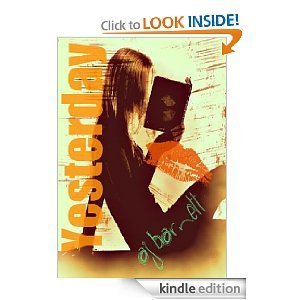
Filed under: guest blogging








February 22, 2012
Does Your Dialogue Annoy Readers? 3 Fixit Tips
Gordon Bonnet
When I read a work of fiction, the first thing I want is real, believable, three-dimensional characters. And there's no better way to accomplish that end than through sharp dialogue. We're talkers, we humans are; we make ourselves known through what we say.
One of the best indicators that an author has gotten dialogue pitch-perfect is when you don't need "he said" or "she said" to know who is talking. Each character's voice comes through so clearly that you'd know regardless; you can hear them in your head, their inflections, their intonations, their accents.
Of course, the problem is that it's easy to overdo. I know one bestselling author who crosses that line with abandon, and the result is characters whose diction begins to sound like some sort of vocal tic. In the latest (and honestly, probably the last) book of hers I read, she had:
a character who was desperate to extend every conversation, and would use all means to stop the person she was talking to from leaving;
a character who was a writer, and brought up his publications continuously;
a character who noted, and made sardonic comments about, what others were wearing; and
a character who brought up his wartime service in the navy in World War II every time he appeared.
This last one became so obnoxious that I started talking to him. "We already know that you were on an aircraft carrier!" I would shout at him. "We don't care any more!" Of course, this had little effect on him but a great effect on my wife, who gave me even stranger looks than usual. In the end, I simply skipped over pages of dialogue that featured him – it was painful to read.
I hasten to add that while some of the examples above were clearly meant to add levity to the story, the story itself was not a comedy – in fact, it was a serious psychological thriller. And far from adding levity, it was an annoying distraction. At least to me, and probably to my wife.
So, on the one hand, we have the flaw of characters whose voices are generic to the point of interchangeability; on the other, the flaw of characters whose voices are so unique that they have become unfunny caricatures. And in between lies that wonderful, and narrow, borderland of rich, diverse creations whose presence brings our plots to life. But how do you find it?
I'm sure that there are as many approaches to this question as there are authors, but here are a few things I consider when I'm writing dialogue.
1) Before you write characters, you need to see and hear them in your own mind. Is his diction animated, reserved, flat, clipped? How does she hold her body when she talks? Do social situations make him nervous? Is she eager to speak? Is his speech accented? Does she meet a person's eyes boldly when she talks? Are his sentences short and to the point, or flowery, long, and full of subordinate clauses?
2) Almost as important as the "what" is the "why." What is your character's background? This will dramatically alter how (s)he speaks. A rather facile example is that a college professor will speak differently than an uneducated farm hand. But it goes deeper than that – someone who is motivated by social status will speak differently than someone who is motivated by compassion, or monetary gain, or fear. Two equally well-educated men might have dramatically different diction if one of them is bent on climbing the career ladder and the other is content in the lower echelons. Note that I'm not referring here to explication of plot points; obviously, the motivations of your characters will come out there. But a character's history, desires, and fears will change how (s)he speaks in all situations, often in very subtle ways. It is a useful exercise to go to a passage in your story, and pick out a line of dialogue, and ask yourself, "Would this character, being whom (s)he is, say this in this way?"
At this point, I must interject a note about swearing. I once had a writer friend state to me, with apparent pride, "I never use inappropriate language in my writing." I don't know how I was expected to respond – "Wow, aren't you virtuous?" is my best guess – but what struck me immediately was, "What if your character swears?" For example, in my novel Shadowboxing, the main character is a high school jock. Well, I've known a good many high school jocks, and I can say with some authority that if I his dialogue was squeaky-clean, it would sound ridiculous and inauthentic. So, the bottom line; learn how your character speaks, and stay true to that voice.
3) A vocal gimmick is okay, as long as it doesn't become excessive. I don't do this much, not wanting to have my readers shouting at my characters, but I have done it on occasion. In my work in progress, I have one character – a relatively minor one – who is based on a friend of mine who consistently screwed up clichés. (In fact, several of the mangled maxims I put in my character's mouth came directly from my friend, including the never-to-be-forgotten, "Man, that really burns my goat!") I tried to make the effect subtler by not having any of the other characters comment on it – they all know her and her propensity, and just take it for granted. I also did my best to use it judiciously, in the hope that enough time will pass between one instance and the next that the reader will have forgotten about it, and it will once again be funny. But I can't emphasize enough that you have to be careful when you do this – nothing kills a story as fast as the combination of "predictable" and "unrealistic."
So, that's my advice. Getting dialogue just right is critical, and worth the work. One of the questions I always ask my beta readers is, "Do the characters' voices sound authentic?" If not, go back to reworking the dialogue. In time, you will have characters whose voices ring as true as sterling silver.
-30-
Here you go:
Gordon Bonnet has been writing with great enthusiasm ever since his first story, Crazy Bird Bends His Beak, won critical acclaim in Mrs. Moore's first grade class at Central Elementary School in St. Albans, West Virginia. His more recent works usually have to do with the realm of the paranormal, although frequent excursions into the world of the past betray a fascination with history. All of his books are available at Amazon and Barnes & Noble.
When he's not writing, Gordon Bonnet can be most often found teaching high school biology or playing the flute in contradance bands in and around Ithaca, New York. He also plays the bagpipes, but would prefer if you'd keep that hush-hush.
You can keep up-to-date on new developments in Gordon Bonnet's writing at:
You can also check out his blog, on science, skepticism, and critical thinking, at:
http://skeptophilia.blogspot.com
Related articles
On Dialouge (lehrhund.wordpress.com)
Art of Writing 1: Swapping character voices & publishing paths (rebeccaberto.wordpress.com)
Fiction Writing Tip #3: Writing Dialogue (nwchristianwriters.wordpress.com)
Filed under: guest blogging








February 21, 2012
Balancing peripheral characters with main characters
I was thrilled beyond the beyond when I asked Vivienne Tuffnell to guest for me; I LOVE her writing and have two of her books to prove it. She is articulate, eloquent, and daggone encouraging to others: a real and genuine person I'm grateful to have met through this indie journey.
You are quite simply in for a treat today.
Balancing peripheral characters with main characters
or how to stop Sideshow Bob murdering Bart Simpson.
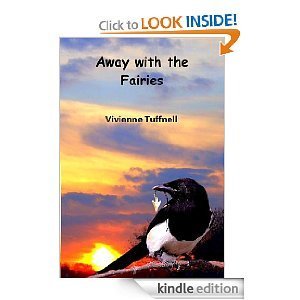
Buy on Amazon for 2.99
One of the few novels I never actually finished was Tolstoy's War and Peace. I was set it over Easter in my final year at university, as a part of my course entitled, "The Art of the Novel". I forced myself to read a quarter of it, got bogged down and in the end got my flatmate to read it for me and give me a précis later. She very kindly did so, but it was all wasted when I got to the first tutorial and my tutor (in free-fall into a nervous breakdown) gave us a bright and brittle smile, said, "Right, you all read Anna Karenina, didn't you?" and things went downhill from then on.
My problem with the novel was a combination of the three-course dinner that was every name and the sheer number of characters. I simply couldn't cope with bonding with that many; I needed to know who was the main character(s) and tune out the rest. It's one of the reasons why I often struggle with fantasy, particularly the epic style fantasy with a cast of thousands and a long list of who everyone is and how they relate to each other. I've also found a great deal of it is cardboard cut-out writing, where a character is generated by a need for certain qualities and that is really all they bring to the story. You don't often get a sense of who that person truly is and what brought them to that point; seldom do you get a feeling that their story has an entire book or two's worth of living to explore. They're not real people, they're something created for a purpose.
I have a head full of imaginary friends, and if truth be told, they're often more vivid at times than many of my "real" friends. Like the "real" people in my life, I often know a great deal about some and less about others, but it's not unusual to find one steps forward and reveals a snapshot of their back-story. With real life friends, it's not unusual to discover extraordinary things about them many years into the relationship, things you have often had a kind of background awareness of but never really discussed. For example, I was aware of one friend's army family upbringing but until recently I never knew she'd been born in the Far East. That brings a whole new dimension to an already interesting person.
It can be the same with the people in my head. Usually the main characters of a story are familiar to me, old friends if you like. But the others are often not so well known to me, friends of friends perhaps and I can be aware of them living their lives just beyond my inner sight and yet not closely aware of the particulars of their deepest workings. Then one day, they do or say something that I hadn't been aware I knew about.
When that happens, I usually step back and take another look at them.
In my novel Strangers and Pilgrims, one of the six main characters Gareth has an older sister who steps into try and help him out of his breakdown. A number of folks have said they wanted to know more about Angela Forester, because though she only appears in a short section of the book, she made an impression strong enough for readers to want to know more about her. She's a peripheral character in two other novels (as yet unpublished) and I am beginning to think she might just have a story to tell me of her own.

Just 2.99
Likewise, Isobel from Away With The Fairies started out as best supporting actress in another novel, due to be published this year. She popped up in the story as a very vivid sidekick to the main character about two thirds through the story. She caught my interest.
This is where the problems can begin. A peripheral character can sometimes sing a siren song, like an intriguing new lover, enticing you to divert the attention, the flow of the story and entirely hijack the key role. They might start to seem more interesting to you, the writer, than the main character you have been bonded at the hip with for so long.
I have some advice for you if this happens. Simply this: DON'T PANIC. It happens to most writers at some time and in all honesty, it needs to. This is the internally generated inspiration a good writer needs. Your first move, once you become aware of what is happening, is to step back a little. Go and spend some time with this pushy peripheral and talk to them. Take them out for a coffee, but make sure they know this is NOT a date. Let them fill you in on their life, on who they are and what they want, and also why they have appeared in this novel. Take notes, listen attentively, and when they've told you enough to be going on with, make a deal with them. Tell them that you'll write more about them. Tell them they'll maybe get their own novel to star in. But also tell them not now, not this novel. Be patient and wait their turn and you'll get onto it as soon as you can and then you will do them proud. Ask them, are they content to try and steal the stage from someone else, or would they rather have the chance to be the star from the start?
This usually works very well. The upstart becomes much more manageable and the information they've given you about themselves adds depth and richness to the story and the main character. You don't need to tell the reader very much about it; it tends to be enough that you know and a kind of ghostly hologram appears, a kind of signature that is often the marker that makes readers say, "I'd like to know more about X," rather than the bewilderment they might feel if X has totally usurped the storyline from your star. The bonus of it is that you now have your next star on-side, co-operative and bursting to get started working with you.
However, not all peripherals are actually the same. It's easy as a writer to get sidetracked and obsessed by the need to populate the background of a novel with convincing portraits of people, to give it colour and depth. It's a little like trying to paint a crowd scene. If you watched the trilogy of films of Lord of the Rings, the vast armies of both sides were very cleverly presented. Panoramic shots of orc hordes in their tens of thousands juxtaposed with rapid close ups of the ranks, showing the astonishing range of differences between not only tribes of orcs but individuals within it. It gave a powerful impression of both the scale of an army and the nature of the individuals within it. But let's face it, none of us wants to see shot after shot of orcs like mugshots, regiment after regiment of perfectly coiffed elves,going on for ten or more minutes, do we? It's enough that we know they're all there and it's the same with writing. You don't need to describe everyone in the park in detail; you use the same technique, brief panoramic overview, a few vivid details and it's enough. It's not dissimilar to the techniques of Impressionist painting. In our striving for reality in writing it's tempting to get so focused on details that we forget we are really trying to create the bigger picture. Not every peripheral character needs to be any more than that.
My final thought is that just as you get to know the people in your life, and their lives ebb and flow in harmony with yours (or not!) it's important to get to know the people in your head, your "imaginary friends" better. This is not about mapping out character details, like a shopping list, but allowing themselves to reveal themselves organically, just as people in real life do. You can't know everything about them consciously, but unconsciously you do. So
trust the process and let them talk to you and let the new stars step forth shyly (or boldly) to conquer their world.
-30-
Related articles
Fiction versus Nonfiction (theeclecticreadingteacher.com)
Filed under: guest blogging, writerwednesday exercises








February 20, 2012
Need a Fast Tip to Adding Flesh to a Character? Put Words in His Mouth:
Guest Post by Walter Shuler

Walter Shuler
I've never considered myself particularly adept at writing dialogue, but I've received several happy-making comments from readers and beta readers for both Blood and Brass and Gods of Sand and Stone that they enjoyed the various interactions between my characters, so maybe I'm not a complete hack. I won't lie – dialogue has always made me nervous. Perhaps the biggest reason I get the jitters is that dialogue is so crucial. It has to:
Further your story
Develop the characters
Engage the reader
Moreover, it has to do all that while still sounding natural. Good dialogue is more than just a plot advancement tool, though. It's vital for good character development. Without good dialogue, it doesn't matter how riveting or original your plot is. Good dialogue makes believable characters that draw your reader in.
The interactions between your characters not only flesh out the people that populate your fictional worlds in the minds of your readers, but they're windows on the way your world works. That's true whether you're writing the next sprawling heir to Tolkien's fantasy crown or a hard-boiled detective novel. Without good dialogue, your readers will eventually lose interest and leave.
Of course, "real" human dialogue can't be used in your writing. It just doesn't work. People communicate through so many cues, half-uttered grunts, grins, snorts, "umms", "yeahs" and slang words that using "real" dialogue in your writing would give your reader a migraine instantly. The problem then, is how do you create good dialogue that actually helps develop your characters and draw your reader into the world?
One of the best ways to help your characters leap off the page (at least as far as I'm concerned), is to give each one a slightly different manner of speaking. Of course, you can do that by using "accents" in your dialogue – dwarven brogue has always been one of my favorites – but be careful not to overdo it.
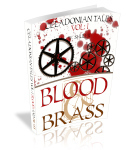
Blood and Brass is available NOW
Just as dropping the last letter of a word (doin') can make your characters seem a bit more realistic, this trick can also kill your reader's attention. No one wants to read paragraph after paragraph in that style, even if your character is from the Louisiana bayous. Here's an example from Gods of Sand and Stone. It's an interchange between Conn, one of the main characters, and the witch, Keera:
The hair rose on the back of Conn's neck as the blind girl stared directly at him with those unseeing eyes and gestured for him to enter. "Come in, come in. Don't stand about on principle. I've been expecting you – it took you longer than it should have."
Conn held his silence.
"Did you drag your feet much? Doesn't seem like you."
Keera watched him with an amused smile as he stood in her doorway. "Foolish boy, you'll find no tricks here. But come inside and you'll see for yourself." Gripping the haft of his spear tightly, Conn did as she bid.
Once inside, he broke his silence. "You're blind."
"Oh, quite the gift you have there! Hadn't noticed it myself."
"You make sport of me," he growled.
"Perhaps just a little. Poor Conn, were you expecting something different? A slavering monstrosity? Did you hope to catch me with a victim strapped to my table? I'm afraid I'm all out of sacrificial animals, but I can start on children and babes if you like. I've got a pen full of sacrifices waiting just out back, right next to the hemlock and dragon's bane!"
That might be an unfair example, as poor Conn only has three lines and Keera's a bit garrulous, but it serves to get the point across, I hope. You can use almost any tricks you want to give each character a unique voice, from profanity to favorite words, a penchant for speaking in clipped sentences or something else.
The other important bit of advice I can offer is this – listen to other people talk. Take whatever opportunity you can to listen to how they converse. In a way, people watching is secondary to people listening. You also need to spend time reading other authors and seeing how they handle dialogue. One my personal favorite authors for exactly this is Raymond Feist. Love him or hate him, he has a way of creating memorable characters that stay with you long after you put down the book. And that's what you want – characters that live and breathe in your readers' imagination. Good dialogue is the key to that.
-30-
Walter Shuler is a father, husband and fantasy writer. His debut book Celadonian Tales Vol: 1 Blood and Brass is now available through Amazon.com here: http://www.amazon.com/dp/B005LST00C. Gods of Sand and Stone is his second book, and the first volume in The God Wars trilogy. It will be available "soon".
You can connect with him on Twitter at: http://twitter.com/#!/anakronistical
Through Facebook at: http://www.facebook.com/hallalitriocht
And check in at his website here: http://hallalitriocht.com/
Filed under: guest blogging









